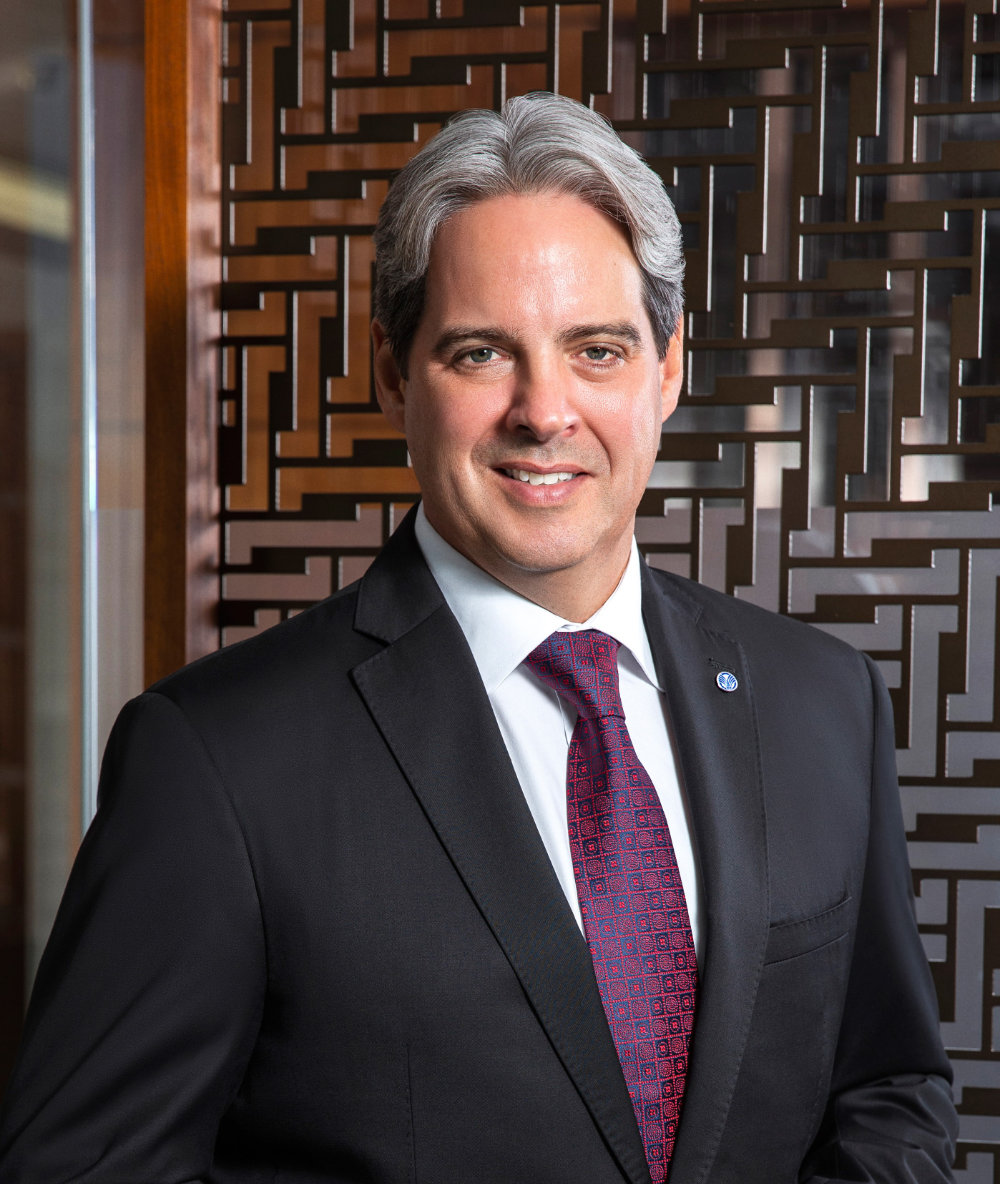DUBAI: Abu Dhabi-based Rotana Hotels has a new brand and approach to set itself apart in a post-pandemic travel landscape. The hospitality major has launched The Edge, a conversion brand that brings existing and independent hotels under its fold to elevate its hospitality offering.
“It’s the perfect time to launch a new brand post-COVID 19. Hotels that struggle will understand the value that an operator can bring in terms of financial management and overall performance,” said Guy Hutchinson, president and CEO of Rotana, in an interview with Arab News.
“A strong, localized brand like ours can elevate performance and returns. It is ideal for hotels managed by others that may be dissatisfied, feel disengagement, and feel they can perform better,” said Hutchinson.
Rotana’s current portfolio includes 112 properties across the Middle East and North Africa, both in operation and pipeline. In the next three years, Hutchinson’s team hopes to have 25 properties under The Edge brand alone.
“And that is a conservative projection; we begin with two properties already signed in Dubai and Istanbul,” he said. “We see a lot of interest in this concept. Our investors are looking for alignment; the Edge provides them a way to convert to a hotel in a cost-effective way.”
Cutting-edge model
The Edge brand will sit under the Rotana parent company alongside familiar brands like Reyhaan and Arjaan. The new conversion-based brand has a development team in the market, with specialists who meet investors, developers and property owners.
“They are proactive, we talk to all these parties involved and meet with developers, and then we put a selection of brands together that will meet client needs,” said Hutchinson. “We have a specialist development team that focuses on this for us.”
Outside the Edge brand, Rotana has 42 properties in the pipeline and a goal to add eight to 10 new hotels per year. Hutchinson said that the ambitious expansion plans are responsible for maintaining existing Rotana properties and bringing them to pre-pandemic levels.
“It’s been through a difficult three years, and our focus is equally on getting existing stakeholders back to where they should be,” he said. “They deserve our focus, and we are responsible to them.”
Rotana’s strategic success helped the brand emerge with strength from the pandemic. It ended 2020 with an above-average occupancy rate of 90 percent due to clever moves, including offering long term accommodation to employees of the oil and gas industry when they needed a place to stay off-site, as well as approximately 1,500 international medical staff who were brought in to assist with added screenings.
Betting on the recovery
Today, Rotana is witnessing the effects of pent-up travel demand from domestic and international visitors.
“Across the industry, this region is leading travel recovery globally,” said Hutchinson. “At the end of the first quarter of 2022, if we take key cities around the Gulf Cooperation Council: Dubai, Abu Dhabi, Doha, Riyadh, these destinations are probably the top five travel destinations in the world right now.”
The hotelier added that Dubai’s average hotel occupancy rates in the first quarter of the year were 84 percent. At the same time, the highest cities were Istanbul and Los Angeles, at 66 percent and 55 percent, respectively. He credited Dubai’s efforts with the Expo and good management of COVID-19 restrictions with a positive impact.
Dubai has become a leading destination for leisure, tourism and hospitality with a regular stream of investment. Dubai’s hotel sector experienced its highest occupancy since 2007 during the final weeks before Expo 2020, with 91.7 percent of Dubai’s rooms occupied, according to early data from STR.
“Saudi Arabia is also a critical space for us and the industry,” said Hutchinson. “As a destination, it’s underserved in terms of the number of hotel rooms. There is also a massive focus from the government on developing tourism infrastructure. It’s a significant opportunity to be at the beginning of that journey.”
Rotana already has seven hotels in Riyadh, Jeddah and Dammam, with another seven in various stages of development in the Kingdom. The team is particularly interested in new destinations that are opening up and have proven popular with domestic travelers, including Alkhobar and AlUla.
“We are interested in expanding, but less in the established cities and more so in these parts of the country opening up and developing tourism infrastructure,” he said. “I think Saudi will surprise us.”

